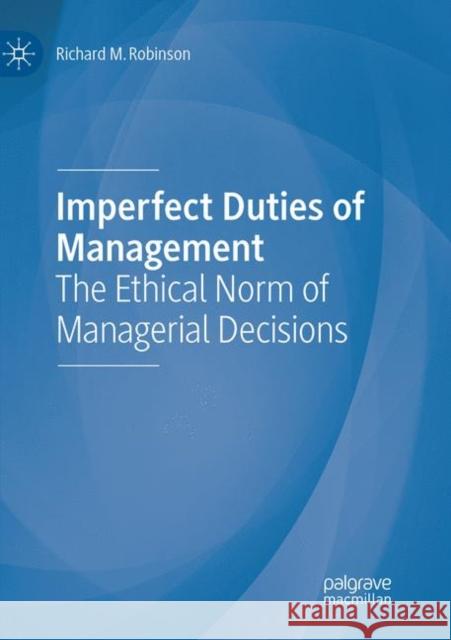Imperfect Duties of Management: The Ethical Norm of Managerial Decisions » książka
topmenu
Imperfect Duties of Management: The Ethical Norm of Managerial Decisions
ISBN-13: 9783030076344 / Angielski / Miękka / 2018 / 241 str.
Kategorie:
Kategorie BISAC:
Wydawca:
Palgrave MacMillan
Język:
Angielski
ISBN-13:
9783030076344
Rok wydania:
2018
Dostępne języki:
Ilość stron:
241
Waga:
0.31 kg
Wymiary:
21.01 x 14.81 x 1.37
Oprawa:
Miękka
Dodatkowe informacje:
Wydanie ilustrowane











